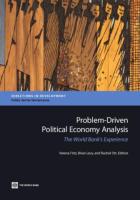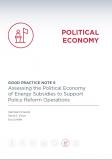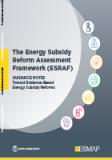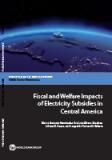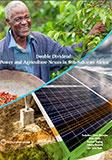Publications
Problem-driven political economy analysis holds considerable promise to help development practitioners identify what policies and strategies are most likely to succeed in addressing difficult and persistent development challenges. This volume is the result of a systematic effort to take stock of what the World Bank has learned from efforts to mainstream this approach. The eight cases presented here are good practice examples that illustrate and reflect on what the Bank has been able to achieve in this area so far. Each chapter begins with a discussion of the specific development challenge that prompted and drove the analysis. These challenges include a mining resource boom in Mongolia, a subsidy reform in Morocco, an electricity sector reform in the Dominican Republic, an electricity and telecommunications reform in Zambia, the development of inclusive commercial agriculture in Ghana, an infrastructure provision at subnational levels in Sierra Leone, a local infrastructure provision in Papua New Guinea, and a local roads and health provision in the Philippines. Summarizing the key findings and feasible policy recommendations proposed by the analysis, each chapter provides examples of how donors can adapt to existing political economy conditions or expand the space for reform in the countries and sectors where they work. Recommendations range from designing politically responsive policy to enhancing the information available to local actors to fostering multistakeholder engagement. Finally, each chapter reflects on the uptake and impact of the problem-driven analysis on Bank operations and policy dialogue. Given these examples, it is possible to conclude that a stronger focus on how politics and economics intersect to shape particular development issues can change the way donors design and implement projects.
Fritz, Verena; Levy, Brian; Ort, Rachel. 2014. Problem-Driven Political Economy Analysis : The World Bank's Experience. Directions in Development--Public Sector Governance. Washington, DC: World Bank. © World Bank. License: CC BY 3.0 IGO. https://openknowledge.worldbank.org/handle/10986/16389
